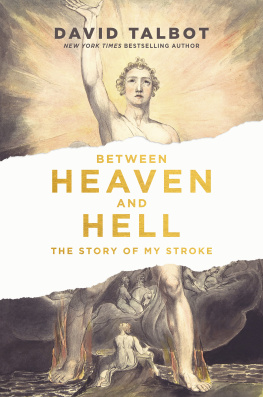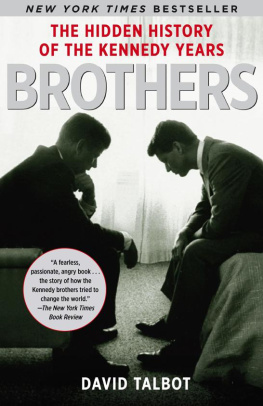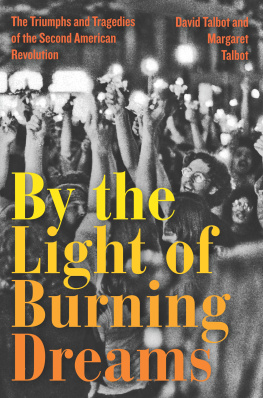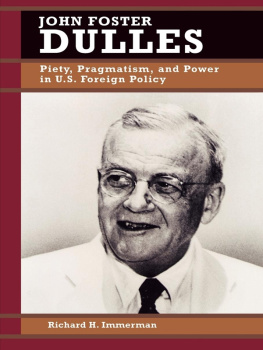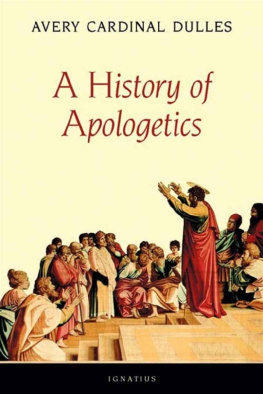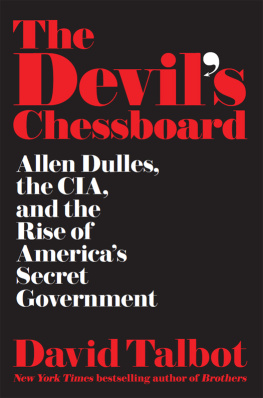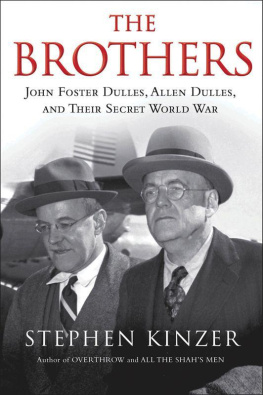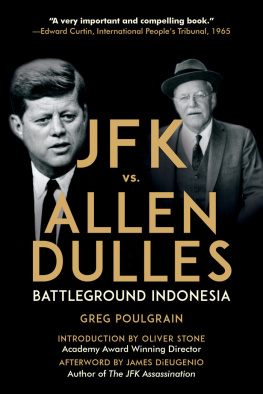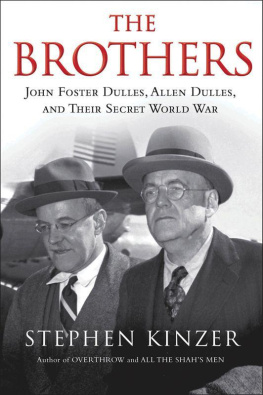I f books were movies, Karen Crofts name would be prominently featured, high in the credits, as executive producer. This book could not have been accomplished without her essential contributions. It was born out of our mutual desire to get to the bottom of this darkly fascinating pool of history and to seek some type of justice for those who escaped it or were denied it in their time. Along the way, Karen and I engaged in endless discussions and debates. She was my fellow investigator as we pursued sources and documents around the globe. She was the first to read the pages I wrote as they came out of my laptop. Through her obsessive dedication and unfailing support, I was allowed to keep those pages coming. This book is the fruit of our partnership.
Karen and I owe much to the generous assistance and intellectual camaraderie of many individuals, who are equally committed to enlightening the public about the crimes and sorrows of our past. We must thank, in particular, our mentor, Peter Dale Scott. It was during one of our many stimulating conversations with Peter that the idea for this book was born. We also feel a special sense of gratitude for the aid and fellowship of Jefferson Morley, James Lesar, Gary Aguilar, Vincent Salandria, Gerry Percy, Lawrence Meli, Adam Walinsky, Paul Schrade, Lisa Pease, Rex Bradford, James DiEugenio, Dick Russell, Marie Fonzi, Daniel Alcorn, Bill Simpich, Jerry Policoff, William Kelly, and Cyril and Ben Wecht. In addition, we benefited from insights, suggestions, and documents provided by William Gowen, Dan Hardway, Eve Pell, John Loftus, Fabrizo Calvi, David Lifton, John Kelin, Leo Sisti, Carlo Mastelloni, Malcolm Blunt, Joan Mellen, John Simkin, and Brenda Brody. And we express our thanks to the generous contributors to the Open America campaign on Indiegogo.
We also relied on the skillful research assistance of Francoise Sorgen-Goldschmidt, Rhoda Newman, Margot Williams, Cliff Callahan, Antony Shugaar, Norma Tennis, and Ron Basich. We are equally indebted to the staffs of Princetons Seeley Mudd Library, where Allen Dulless papers are kept; Harvards Schlesinger Library, which houses the papers of Martha Clover Dulles and Mary Bancroft; as well as the staff members of the John F. Kennedy Library, Dwight D. Eisenhower Library, the New York Public Librarys archives department, the Hoover Institution, the University of CaliforniaSanta Barbara special collections department, and the George C. Marshall Foundation.
We are among the historians plumbing the depths of U.S. intelligence and national security, from World War II on, who have made vital discoveries by combing through the wealth of official documents released under sunshine laws such as the John F. Kennedy Assassination Records Collection Act and the Nazi War Crimes Disclosure Act. (Many JFKrelated documents are archived at the essential Mary Ferrell Foundation website.) The American people have only gained access to this hidden history as a result of concerted political pressure, and agencies such as the CIA still remain defiantly opposed to fully disclosing the information they are required to under federal law. As the tyrannical regime in Orwells 1984 understood, Who controls the past controls the future. It is essential that we continue to fight for the right to own our history.
In addition to archival and documentary research, we also learned much from interviewing the sons and daughters, as well as former colleagues, of the secretive men who are the subject of this book. We are especially thankful to Joan Talley, the daughter of Allen Dulles, though she bears no responsibility for our views.
Authors who put the products of their hard labors in the hands of editors often do so with the trepidation of parents who place their offspring in the hands of surgeons. It was, therefore, an enormous joy and reliefafter entrusting this book to Jennifer Barth at HarperCollinsto witness the delicate precision of her editorial hand. She earned my trust and respect, page by page.
I am also indebted to my longtime agent, Sloan Harris of ICM, for his sound judgment, levelheaded demeanor, and keen literary and business sense.
Thanks once again to the indomitable Kelly Frankeny for her cover-design wizardry, as well as to Robert Newman.
And lastbut far, far from leastI celebrate my wife, Camille Peri. Only someone blessed with her indestructible strength of characterand afflicted with her literary talent and destinycould have empathetically stood by me these past few years, as I clawed my way to the finish line.
T hat little Kennedy... he thought he was a god.
The words were sharp and wrong, like a curse shattering the civility of the soft evening air. They seemed particularly strange coming from the genial older gentleman strolling by Willie Morriss side. In fact, they were the only strident remarks that Morris had heard him utter in the past few days, as the graying spymaster regaled his young visitor with a lifetime of covert adventures.
And then the storm passed. The man was himself againthe chatty and amiable Allen Welsh Dulles, a man whose conviviality masked a world of dark secrets. The two men continued their walk on that Indian summer evening in 1965, ambling along the rust-colored brick sidewalks as the lampposts began casting their yellow light on picturesque Georgetownhome of Washington hostesses, martini-loving spies, influential newspapermen, and the assorted insiders who fed off the fizz and sizzle of the nations capital. Turning the corner from the unassuming, two-story brick mansion on Q Street that Dulles rented, they now found themselves on R Street, straddling the vast greenery of the Dumbarton Oaks estate.
Dulles, the creator of Americas sprawling intelligence empire, had summoned Morrisa rising young editor at Harpers magazineto help him set the record straight on the most cutting humiliation of his career. He wanted to write his side of the story about the Bay of Pigs. The words alone still brought a spasm of pain and rage to Dulless face. It was just a spit of sand and scrubby palms along Cubas southern coast. But it was the scene, in April 1961, of the biggest disaster in the CIAs historya motley invasion that fell ignominiously short of toppling Cubas dangerously charismatic leader, Fidel Castro. The failed invasion, Dulles said, was the blackest day of my life.
In public, the newly minted president, John F. Kennedy, took responsibility for the fiasco and made gracious remarks about Dulles as he prepared to usher the aging spy out the door, after a half century of public service encompassing eight different presidencies. But in private, a vicious war had begun between the Kennedy and Dulles camps, with the two men and their advocates working the press and arguing not just the botched mechanics of the invasion, but the past and future of U.S. foreign policy.


